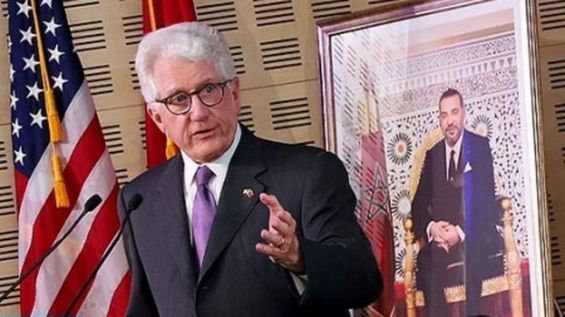On December 10, the United States' outgoing President Donald Trump signed a proclamation on recognizing the sovereignty of Morocco over Western Sahara. The historic decision, which included the opening of a US consulate general in the Sahara, came as Morocco agreed to normalize ties with Israel as part of a deal brokered by the Trump administration.
Regionally, the US recognition triggered polarizing reactions, with countries welcoming the step and others calling it «unilateral» and with «no force or effect».
The United States Ambassador to Morocco David T. Fischer answered Yabiladi’s questions on the American decision, the new consulate in Dakhla and the US opinion on the political process led by the United Nations.
As a permanent member of the United Nations’ Security Council, would this recent recognition change the United States’ position on the territorial dispute?
On Western Sahara, President Trump is rejecting the status quo – which benefits no one – and driving toward a serious, realistic, and credible solution to the Western Sahara conflict.
The United States believes that autonomy is the only realistic option to achieve a just, lasting, and mutually acceptable solution for the future of Western Sahara.
This plan encourages further discussion. It uses autonomy as the framework for a solution that satisfies the aspirations of the people of the Western Sahara. This can and will be found.
We continue to urge all participants to constructively engage with the UN and consider new, creative and genuine ways to move the peace process forward. The United States continues to press for the appointment of a new Personal Envoy for the Secretary General to facilitate this historic solution.
The United States remains committed to working with all involved to support the necessary work ahead.
Do you expect the Biden administration to have another say on the decision decreed by outgoing President Donald Trump?
Under the U.S. Constitution, the President – through the executive branch of the federal government -- conducts diplomacy with other nations.
Morocco is one of the oldest and closest allies of the United States and every presidential administration since President Clinton has affirmed its support for Morocco's autonomy proposal for Western Sahara. And every Administration, Republican or Democratic, has strongly promoted recognition of Israel and expansion of regional peace.
What about the Dakhla US consulate …
King Mohammed VI’s bold leadership has expertly positioned Morocco as the economic «Gateway to Africa», thanks to the Kingdom’s free trade agreements with countries in Europe, the Middle East, and Africa. Morocco is also the only country in Africa to have a free trade agreement with the United States.
Opening a consulate in Dakhla would allow the United States to take further advantage of Morocco’s strategic positioning as a hub for trade in Africa, Europe, and the Middle East. Specifically, it will support and encourage investment and development projects that bring tangible benefits to the people of Western Sahara.
Any time we can bring more trade to an area – it means more investment, it means more jobs, it means giving people a home and a future. That’s what the United States is about, and that’s what the King envisions for – as I’ve come to call it – the Moroccan Sahara. We really look forward to economic growth and prosperity there.





 chargement...
chargement...













